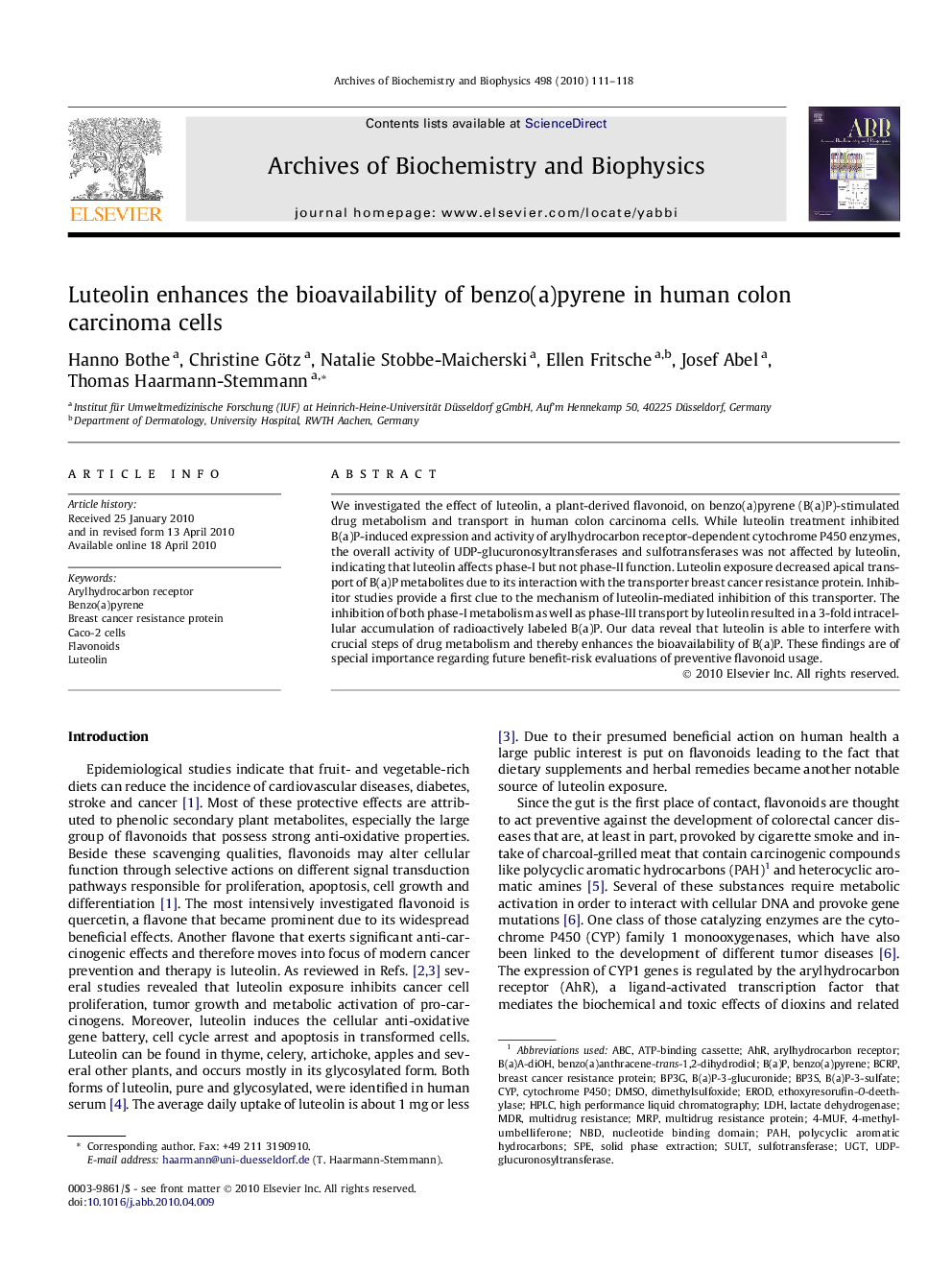| Article ID | Journal | Published Year | Pages | File Type |
|---|---|---|---|---|
| 1926105 | Archives of Biochemistry and Biophysics | 2010 | 8 Pages |
We investigated the effect of luteolin, a plant-derived flavonoid, on benzo(a)pyrene (B(a)P)-stimulated drug metabolism and transport in human colon carcinoma cells. While luteolin treatment inhibited B(a)P-induced expression and activity of arylhydrocarbon receptor-dependent cytochrome P450 enzymes, the overall activity of UDP-glucuronosyltransferases and sulfotransferases was not affected by luteolin, indicating that luteolin affects phase-I but not phase-II function. Luteolin exposure decreased apical transport of B(a)P metabolites due to its interaction with the transporter breast cancer resistance protein. Inhibitor studies provide a first clue to the mechanism of luteolin-mediated inhibition of this transporter. The inhibition of both phase-I metabolism as well as phase-III transport by luteolin resulted in a 3-fold intracellular accumulation of radioactively labeled B(a)P. Our data reveal that luteolin is able to interfere with crucial steps of drug metabolism and thereby enhances the bioavailability of B(a)P. These findings are of special importance regarding future benefit-risk evaluations of preventive flavonoid usage.
